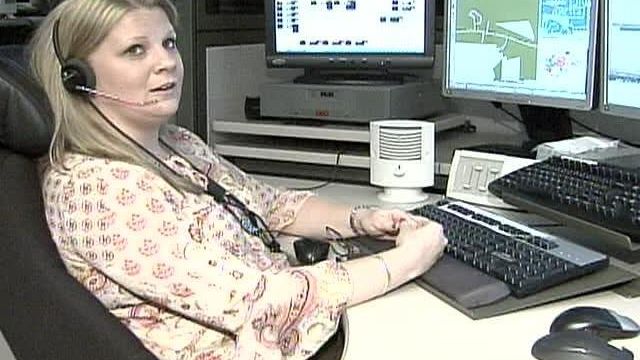Local News
Raleigh 911 Center to Get Help: More Operators
Emergency communication centers in the state's largest cities take an average of 600,000 calls per year. Last year, Raleigh answered more than 780,000.
Posted — UpdatedRALEIGH, N.C. — Cities often measure growth by their population or their tax base. Raleigh has another yardstick — demand on its 911 call center.
Emergency communication centers in the state's largest cities take an average of 600,000 calls per year. Last year, Raleigh answered more than 780,000.
In addition, call volume isn't the only issue. Who's making the calls and how they're made adds to the load on the city's resources, and city officials say they need more help on the receiving end of 911.
For 8½ years, Candice Foster has been on the receiving end of Raleigh 911 calls.
“During the day, it's nonstop all day long,” said Candice Foster, who has been a 911 operator for 8 ½ years.
Raleigh 911 operators fielded about 1,000 more calls a week in 2006 than the year before, or 850,000 calls all together. City Manager Russell Allen said that requires 10 more telecommunicator positions, and the City Council included them in the budget it adopted Monday. Right now, the city has about 60 operators.
“The growth is just driving us to have to put more staff in,” Allen said.
He said the 10 new positions will cost about $450,000 each year.
“Our staff takes about 50 percent more 911 calls than the statewide average. so certainly there's a workload impact,” said 911 Director Barry Furey.
Part of the need for more operators is attributable to a large number of calls from non-English speakers and the fact that more than 50 percent of calls come from cell phones.
The cell calls “take longer to process because we have to ask additional questions to find a good dispatchable location,” Furey said.
During that time, Furey added, “One of our people is not available to answer the next emergency call that's coming down the line.”
The center’s goal is to answer 90 percent of calls in 10 seconds or less.
“That's a standard that we've always exceeded significantly,” Allen said, “and we've started to see some slippage from that.”
• Credits
Copyright 2024 by Capitol Broadcasting Company. All rights reserved. This material may not be published, broadcast, rewritten or redistributed.





